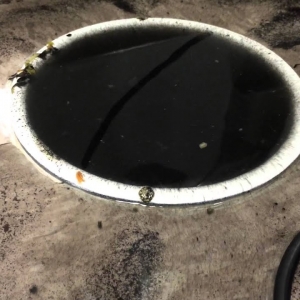For any construction project in Tulsa whether it's a new commercial facility, a warehouse expansion, or a custom home in a developing suburb the most critical phase happens long before the first wall is raised. It occurs at ground level, where the earth itself is shaped and prepared. This initial stage, known as dirt work, is the unsung hero of a successful build. In Tulsa’s unique landscape, skipping professional Dirt Work Tulsa OK services isn't just a risk; it's a decision that can haunt the entire lifecycle of your property. Getting this foundation right is what separates a durable, valuable asset from a project plagued with costly, recurring problems.
More Than Just Moving Dirt: What is Site Preparation?
To the untrained eye, dirt work might look like simple excavation. In reality, it is a precise and multi-stage engineering process that prepares the land to bear the weight of your investment for decades to come. It encompasses clearing, grading, excavation, compaction, and soil stabilization. Think of it as creating a stable, reliable canvas upon which every other component of your construction project will depend. When you hire a professional Dirt Work service Tulsa OK relies on, you're not just renting heavy machinery; you're investing in the geological integrity of your site.
The Tulsa Terrain: Why Local Expertise is Non-Negotiable
Tulsa’s soil and climate present a unique set of challenges that generic construction approaches simply can't address. Understanding these local conditions is the first step in appreciating why professional dirt work is so vital.
The Clay Soil Problem
Much of the Tulsa area is underlain by thick, expansive clay. This isn't your average garden-variety dirt.
- It Expands and Contracts: Expansive clay acts like a sponge. During the rainy springs, it absorbs water and swells, exerting tremendous upward pressure called "heave" on foundations, slabs, and utilities. In the hot, dry Oklahoma summers, it shrinks and cracks, pulling away from foundations and creating voids. This continuous cycle of movement is the primary cause of cracked foundations, uneven floors, and broken pipes.
- Poor Drainage: Clay is dense and has very low permeability. Water doesn't drain through it easily. Without proper grading and drainage solutions implemented during the dirt work phase, water will pool around your foundation, leading to basement flooding, soil erosion, and accelerated deterioration.
Unpredictable Weather Patterns
Tulsa’s climate adds another layer of complexity.
- Heavy Rainfall: Intense, sudden downpours can quickly saturate an unprepared site, washing away unstabilized soil and causing project delays. Proper grading ensures water is directed away from the construction area and future structure.
- The Freeze-Thaw Cycle: While Tulsa's winters are generally mild, we do experience freezing temperatures. When water trapped in the soil freezes, it expands. This can further destabilize the ground beneath your foundation, leading to frost heave and structural damage.
The High Cost of Cutting Corners on Dirt Work
Choosing an inexperienced crew or opting for the cheapest bid for site preparation is a gamble with exceptionally poor odds. The consequences of inadequate dirt work are severe, expensive, and often irreversible.
Foundation Failure. This is the most catastrophic and costly outcome. A foundation poured on improperly compacted or unstable soil will crack and settle unevenly. The signs sticking doors and windows, cracks in drywall, and uneven floors are the symptoms of a failing project. Repairing a foundation is incredibly invasive and can cost tens of thousands of dollars, often not covered by standard insurance.
Chronic Drainage Issues. Imagine a warehouse yard that turns into a lake after every rain, halting loading dock operations. Or an office building with a perpetually damp basement. Or a landscaped yard that erodes away with each storm. These are not minor inconveniences; they are operational nightmares that stem from incorrect grading during the initial site preparation.
Project Delays and Budget Overruns. Rushing or botching the dirt work phase often leads to bigger problems discovered later. You might have to halt construction to re-grade a site, repair a compromised utility line, or even address a failing sub-base. These mid-project fixes are always more expensive and time-consuming than doing the job correctly the first time.
The Professional Process: A Step-by-Step Approach to a Stable Site
So, what does a professional dirt work contractor actually do to mitigate these risks? It’s a meticulous, step-by-step process.
1. Site Evaluation and Testing
It all starts with knowledge. A professional will conduct a thorough assessment of your site’s topography and, most importantly, its soil composition. They may take core samples to analyze the soil's load-bearing capacity and its expansion potential. This data informs every decision that follows.
2. Clearing and Grubbing
This involves removing surface obstacles like trees, stumps, brush, and rocks. It’s not just about clearing the land; it’s about ensuring all organic material is removed. If tree roots or other debris are left to decompose under a slab, they will create voids as they rot, leading to settlement.
3. Rough Grading and Excavation
Using GPS-guided machinery for precision, operators begin to sculpt the land according to the engineered site plan. This stage establishes the basic shape and slope of the property, ensuring it matches the architectural design and begins to facilitate proper drainage.
4. Soil Stabilization and Compaction
This is the heart of professional dirt work, especially in Tulsa.
- Stabilization: If the native soil is too unstable (like our expansive clay), it may need to be treated or replaced. This can involve mixing in lime or cement to reduce its plasticity and increase its strength, or bringing in a more stable "select fill" material.
- Compaction: Heavy machinery, like vibratory rollers and compactors, is used to systematically compress the soil in thin layers. This removes air pockets and increases the soil's density, creating a solid, immovable base that will not settle over time. Professionals use specialized gauges to test compaction levels, ensuring they meet specific engineering standards.
5. Final Grading and Drainage Installation
Once the sub-base is stable, the final grading takes place. This creates the precise slopes typically a minimum 2% grade away from the foundation that will direct surface water toward swales, ditches, or storm drains. This is also when underground drainage systems, like French drains, are installed to manage subsurface water.
The Tangible Return on Your Investment
Hiring a professional for your site preparation isn't an expense; it's one of the smartest investments you can make in your construction project.
- Long-Term Structural Integrity: A properly prepared site is the single greatest defense against foundation problems. It ensures your building remains level, stable, and crack-free for its entire lifespan, protecting your property's value.
- Prevention of Water Damage: Correct grading and drainage protect your building from moisture intrusion, which can cause mold, wood rot, and damage to inventory or equipment. This saves you money on repairs and maintains a healthier environment.
- A Smoother, Faster Construction Timeline: When the foundation crew arrives to a perfectly prepared site, their work can proceed without delay or complication. A professional dirt work project sets a positive, efficient tone for every trade that follows, helping to keep the entire project on schedule and on budget.
Building on a Solid Foundation
Whether you're planning a new metal building for your business, a retail strip center, or a custom home, the principle remains the same: what you can't see matters most. The integrity of your entire project is determined in the first few weeks of work, long before the impressive structures begin to take shape.
By partnering with a reputable contractor who understands the nuances of Tulsa’s soil and climate, you are making a proactive decision to protect your investment. You are choosing to build on a foundation of certainty, not a substrate of risk. Don't let your project's future be compromised by its beginning. Ensure your first and most important step is done right.










